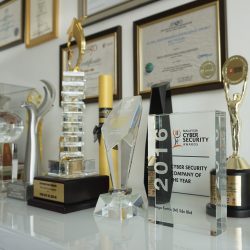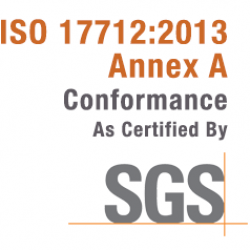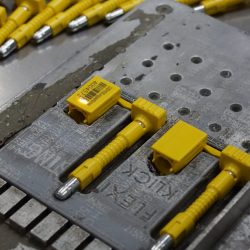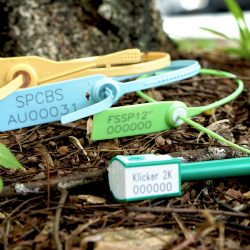DOCUMENTATION
Mega Fortris Group is extremely proud of its manufacturing achievements at our main production facility in Malaysia. Through these standards, we are recognised worldwide for our high quality security seals. Every security seal we produce is made to the highest quality.
Learn more about why you should choose us here.

The current ISO 17712 standard requires independent confirmation in three areas:
- Testing to determine a security seals physical strength (as barriers to entry).
- Auditing of manufacturer’s security-related business processes.
- Seals be designed and constructed with tamper indicative features that generate tell-tale evidence of tampering.
Mega Fortris has a range of high security seals products that is in-line with these standard. Learn more about the ISO 17712 standard here.

ISO 9001:2015 is a standard that we ensure is achieved throughout our manufacturing plant. Our Management team is responsible for ensuring each process complies with the requirements of ISO 9001.
Mega Fortris is committed to social responsibility and environmental causes; our manufacturing plant is ISO14001:2004 certified for the design, manufacture and supply of our security seals.
Learn more here.

Mega Fortris Group of Companies has always been committed to developing products that support a sustainable environment and contribute to a better future for all.
As single-use plastic demands increase, which includes plastic security seals, we feel the need that as the global market leader we have to meet this necessary requirement without harming our planet. Hence, under our company’s Green Warrior initiative we are pleased to introduce an environmentally friendly and degradable security seal in our full range of security seals as a value-added feature for our clients. This small change can create significant improvements in jointly sustaining the supply chain and the environment.
Without compromising on functionality or our signature high-shelf and service life, our biodegradable plastic security seals can be biologically broken down when in contact with naturally occurring microbes. The byproducts of degradation are both non-toxic to the environment and compatible in recycling.
Click here to learn more about this.

